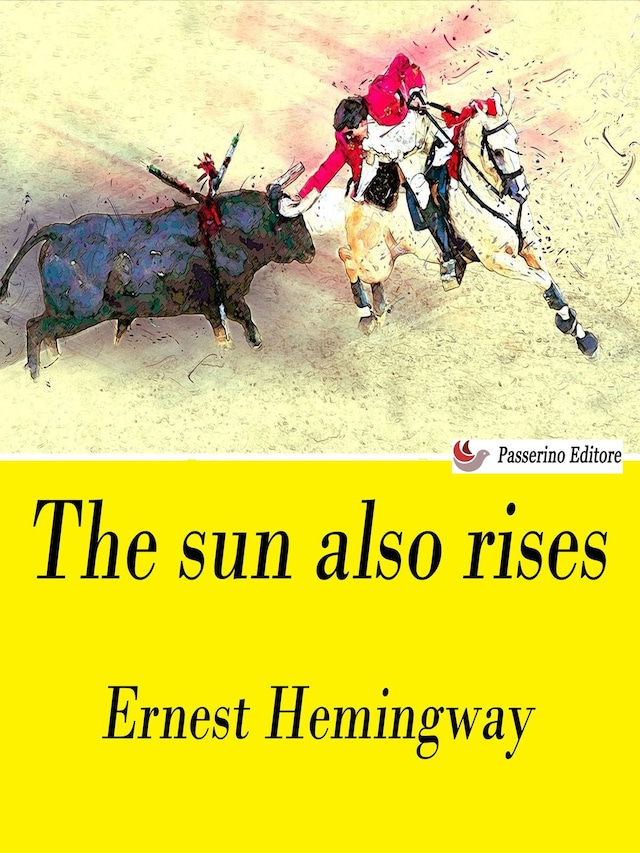
The sun also rises
Description of book
The Sun Also Rises is a 1926 novel by American writer Ernest Hemingway, his first, that portrays American and British expatriates who travel from Paris to the Festival of San Fermín in Pamplona to watch the running of the bulls and the bullfights. An early and enduring modernist novel, it received mixed reviews upon publication. However, Hemingway biographer Jeffrey Meyers writes that it is now "recognized as Hemingway's greatest work", and Hemingway scholar Linda Wagner-Martin calls it his most important novel. The novel is a roman à clef: the characters are based on real people in Hemingway's circle, and the action is based on real events, particularly Hemingway's life in Paris in the 1920s and a trip to Spain in 1925 for the Pamplona festival and fishing in the Pyrenees. Hemingway presents his notion that the "Lost Generation"—considered to have been decadent, dissolute, and irretrievably damaged by World War I—was in fact resilient and strong. Hemingway investigates the themes of love and death, the revivifying power of nature, and the concept of masculinity. His spare writing style, combined with his restrained use of description to convey characterizations and action, demonstrates his "Iceberg Theory" of writing.
Ernest Miller Hemingway (July 21, 1899 – July 2, 1961) was an American novelist, short-story writer, journalist, and sportsman. His economical and understated style—which he termed the iceberg theory—had a strong influence on 20th-century fiction, while his adventurous lifestyle and his public image brought him admiration from later generations. Hemingway produced most of his work between the mid-1920s and the mid-1950s, and he was awarded the 1954 Nobel Prize in Literature. He published seven novels, six short-story collections, and two nonfiction works. Three of his novels, four short-story collections, and three nonfiction works were published posthumously. Many of his works are considered classics of American literature.
 Ernest Hemingway
Ernest Hemingway 216 Pages
216 PagesFormat:
Language:
English